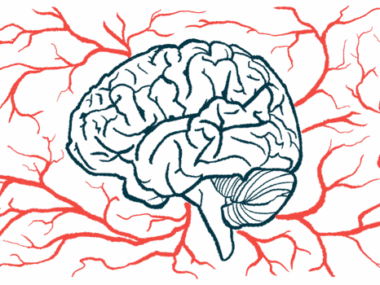L-serine Improved Outcomes in Girl with Atypical Rett Syndrome, Case Report Says
Written by |

Dietary supplementation with the amino acid L-serine improved motor and communication skills in a young girl with atypical Rett syndrome caused by a genetic mutation in the GRIN2B gene, a case report shows.
The patient’s positive outcomes suggest that this dietary therapeutic approach may be helpful for those with similar genetic variants.
The study, “L-Serine dietary supplementation is associated with clinical improvement of loss-of-function GRIN2B-related pediatric encephalopathy,” was published in the journal Science Signaling.
The patient was born after a normal pregnancy and with no family history of neurodevelopmental disorders. She was first referred to a specialized clinic when she was a year old.
On an initial clinical examination, the girl showed signs of psychomotor delay with severe hypotonia (low muscle tone), and was unable to hold up her head or sit upright. Behaviorally, she showed poor visual contact and social interaction skills, no interest in the surrounding environment, and high irritability with sleep disturbances.
Based on these clinical symptoms, she was diagnosed with Rett syndrome. To confirm the initial diagnosis, the team performed additional analysis, which did not reveal any structural or metabolic brain alterations that could explain her symptoms.
As she aged, some of her symptoms became less severe and intense. Still, by the age of 3.5 years, the girl experienced some brain activity alterations similar to epileptic seizures.
Initial genetic tests failed to identify any genetic mutations commonly linked to Rett syndrome, including those on the MECP2, CDKL5, and FOXG1 genes.
Upon more detailed analysis, the team found that the patient had a mutation in the GRIN2B gene, which encodes a sub-unit of N-methyl-D-aspartate receptor (NMDAR).
NMDAR is an important receptor that mediates signals in brain cells triggered by an important neurotransmitter called glutamate.
Glutamathemic neurotransmission is essential for the normal response of brain cells. This means that if glutamate signals mediated by NMDAR are impaired, nerve cells will be unable to behave normally. This could help explain the girl’s neurological symptoms.
Researchers collaborated to explore the role of the newly identified mutation and how it could affect the development of Rett syndrome.
Using various experimental models, the team confirmed that the GRIN2B mutation prevented normal glutamate signals in nerve cells.
NMDARs can also be activated by a variant of the non-essential amino acid serine, commonly named D-serine. As such, the team decided to test whether the mutated version of NMDARs that the girl carried would respond to this compound.
After positive preclinical results, the girl began to take dietary supplements of L-serine, an approved nutraceutical amino acid that acts as a natural precursor of D-serine, another amino acid that yielded positive preclinical results in cells with the GRIN2B mutation.
The girl began to take 500 mg/kg per day when she was 5 years and 10 months of age and continued for at least 17 months. This regimen led to a 4.4-fold increase in the amount of D-serine in her blood.
During follow-up, she showed marked improvement of communication, social, and motor skills. She now demonstrated an interest in faces and had steady eye contact. She also followed the activities of other people with interest, and was able to stretch her arms, turn her head when called, laugh at funny situations, and was generally happier.
“Overall, the clinical assessments indicated an improvement in cognitive, communicative, and motor impairments associated with L-serine dietary supplementation,” the researchers said.
At this stage, the girl could also imitate toy and animal sounds, creep on the floor, and move from a prone to a sitting position, as well as from a sitting to standing position with support. Her sleeping patterns improved significantly and she was able to sit down without help and walk using an orthopedic walker.
“The results that we observe in the patient after a year and a half are very promising and we hope they will continue improving,” Xavier Altafaj, PhD, principal investigator at Spain’s Bellvitge Biomedical Research Institute (IDIBELL) and senior author of the study, said in a news release.
“But we must also bear in mind that they are the result of a combined effort of several therapeutic interventions carried out by the family and other multidisciplinary teams,” he said. Still, previous studies with similar clinical cases have failed to demonstrate such significant outcomes, “and in this sense this study makes us be very optimistic and pushes us forward in this direction.”
Supported by the success of this case, the team is planning a multi-center clinical trial in Europe to further explore the potential of this dietary supplement regimen for children who have disorders caused by GRIN2B mutations associated with low NMDA receptor activity.





